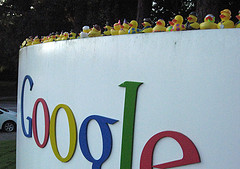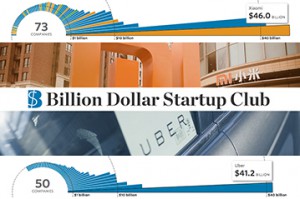Uncategorized
Google says Fi is not intended to disrupt wireless carriers. No one believes it.
Google has just launched Google Fi a wireless service that switches between a carrier network and WiFi depending on signal strength. The launch Google says is not intended to disrupt phone carriers. Which maybe true it is only being rolled out on the Nexus 6 device for now. Yet if this launch is successful it will be easy to see how this can set Google up to enter the carrier market. Priced at $20 a month with a charge of $10 per gb used this would be one of the best priced carrier services especially when you consider the refunds that a consumer would get for unused Data.
As google is already a major player in the phone industry with Android, is this the next major step?
10 Tips For Post Graduation

Graduation is near. I wanted to post an article that had some post graduation tips for success. We will encounter some major changes and need to stay focused. Here are some tips:
1. Take advantage of your alumni network – Everyone has heard, “It’s not what you know, it’s who you know.”
2. Don’t get discouraged too quickly – For those who do not have full time offers yet, do not get discouraged.
3. Consider graduate school – If this is something you want in your future, it’s never too early. Try and see if your company will pay your tuition.
4. Consider internships
5. Ask for challenging assignments
6. Recognize what you do and don’t want to do
7. Teach yourself new skills
8. Read for pleasure
9. Stop obsessing
10. Enjoy this time of uncertainty
I feel that some of these are good tips to keep fresh in your mind. Congratulations everyone ! Good luck with all of your endeavors.
7 Tips For Nailing Your Pitch

With our presentations coming up, I thought I would post an article that discussed tips that may help your team improve there pitch. Your idea is only as good as your pitch. Even with a great idea, if you can’t clearly explain it or paint a picture for your audience, your idea is worthless. Here are some tips to look over before finalizing your pitch.
1. Start with an overview of what your company does – Explain the problem you are solving and describe how you will be doing this. You want to very clear when describing your application.
2. Keep it simple – You do not want to confuse your audience. You want the audience to be able to follow your entire presentation without many questions.
3. Involve your whole team in the presentation – It helps to have the whole team up there and presenting some sort of information. It helps show that your team is well rounded and on the same pa
4. Be ready to answer questions – We were lucky enough to do a trial run in front of class. We got to see what questions people may have following our presentations. Based off those questions, focus on what other questions people may have and how to answer the questions that were already asked.
5. End with a summary – Recap with the main points you want the audience to leave remembering.
6. Don’t be discouraged by negative feedback – Just because the pitch or presentation does not go according to planned does not mean that you have a bad idea.
7. If you don’t understand the feedback, ask for clarification – You will gain valuable information and see where your team can improve.
Do you guys find these tips helpful?
What other tips do you have for the class to prepare for their pitch?
Autonomous Cars Are Closer Than You Think

We learned about autonomous vehicles as we were going over disruptive innovations earlier in the semester. This article is saying that within the next five years we will begin to see autonomous features in new cars. The article isn’t suggesting that these cars will be COMPLETELY autonomous yet, but more and more autonomous features will be coming out. A possible feature would be autonomous driving in traffic jams that will function based off of lane alerts. Also, there has been discussion around assisted parking.
Autonomous Cars Are Closer Than You Think
What autonomous features do you think would be most beneficial/convenient?
What features do you think will come out first?
Following the bulls to the bubble?
The billion dollar start up club.
I found this interesting graphic on the Wall Street Journal that got me thinking about start up funding today.
The start up boom is still in full swing and it seems like every time we turn around we are introduced to another billion dollar plus start up. Which begs the questions, are we on our way to the next bubble? Is Uber (valued at $41.2 billion) really worth more then Sony? Is Snapchat, a company that is still not sure how it’s going to make money really worth $15 billion? Are the venture capitalists brilliant or insane?
I don’t believe anyone is sure of the answers to these questions and with so much money on the line it is a safe bet that an army of people are out there somewhere doing the due diligence before handing out capital. I understand that money isn’t just being slung at everyone with a latte and an idea. Indeed start ups are on average getting older and more mature before they head out for a cycle of funding.Yet despite that the spiraling increases in valuation are worrying, they must reach a ceiling at some point. As venture capitalist are still bullish on start ups though its hard to tell if we are in sight of the ceiling yet or still far away.
Here is the article. Are we in the bubble?
Disruptive Innovation and Education

Disruptive Innovation and Education
In this Forbes article, author Michael Horn talks about his interaction with Clay Christensen and how they used disruptive innovation to suggest ways for public schools to innovate. Horn states that the education system that we have today is, in many ways, built as a sorting system. “Those students who can’t keep up with the pace are sorted out at various intervals – an arrangement that worked fine for many in the past, but in today’s knowledge economy is no longer OK.” Horn suggested that online education is a way for public schools to cater to the individual needs that each student has instead of treating them all as if they are exactly the same. Horn also states that online education could also disrupt higher education. He states that it could severely affect some institutes a lot more than others but the ones that aren’t affected that much could adopt it as sustained innovation. Do you think that online education is more disruptive towards k-12 learning or higher education? Do you think that this could be the future of learning? Will it affect any other industries?
Four Unconventional Ways To Tell If Your Workplace Culture Is Toxic
 With graduation around the corner, many students are willing to take any job they can get. Many are ignoring the important factor of culture in the workplace. If you do not mesh well with the culture of your company, it is going to make your attitude towards work suffer. In this Forbes article, author Maureen Henderson shares some tips on how to tell if the culture you dove into is actually toxic.
With graduation around the corner, many students are willing to take any job they can get. Many are ignoring the important factor of culture in the workplace. If you do not mesh well with the culture of your company, it is going to make your attitude towards work suffer. In this Forbes article, author Maureen Henderson shares some tips on how to tell if the culture you dove into is actually toxic.
– Employees spending time with each other outside of the workplace to bond is a great sign that it is easy to get along with your co-workers.
– Noticing people’s reactions to entering and leaving the office will determine weather or not they enjoy spending 40 hours a week there.
– If co-workers support each other with non-work context. For example, do other co-workers buy Girl Scout cookies to help out a co-workers daughter? (I’m not sure if anyone, toxic or not, could turn down Girl Scout cookies)
While looking for jobs are you interested in the companies culture to make sure you’ll fit in?
Do you feel as though it is imperative you fit into your companies culture? Or is clocking in, working, and clocking out enough for you?
http://www.forbes.com/sites/jmaureenhenderson/2015/04/21/four-unconventional-ways-to-tell-if-your-workplace-culture-is-toxic/2/
Making An Effective Presentation

Making An Effective Presentation
In this Forbes article, author Bill Rosenthal explains the three main components to delivering a successful and effective presentation. He first highlights that the three most important parts to any presentation is: (1) making an emotional connection with the audience, (2) present with energy, and (3) spell out the payoff for the audience. Rosenthal states that conciously or not, an audience forms a bias for or against a presenter within seconds. The key to this step is ensuring that you come across as likale and trustworthy. He says that the key to being likable is simple: show you like the audience and they will reciprocate, and once that is acheived, the trust will come. The next step is to present with energy. Rosenthal states that the way to get the audience excited about your presentation is by showing them your own excitement. The last step is spelling out the payoff for the audience. Rosenthal states that you should never assume that the audience will understand the take away as quickly as you, the presenter, has. He says that you need to state your key facts and then reiterate them in different ways so that they can sink in. Seeing as how we are all going to be giving presentations on our projects, I felt that this article could be helpful. Can you think of any other techniques that you can use to incorporate Rosenthal’s three key components within your own presentations?
3 Questions on Killer Robots
Since fully autonomous weapons don’t yet exist, why isn’t a ban premature?
Although fully autonomous weapons are not in the market at this time, national- security experts are saying countries will be looking at this as the next step in warfare technology. These experts believe that any fully autonomous weapons should be banned before any developing begins. Concerns around these weapons are rising because of the intense threats it brings to society.
Isn’t it difficult to define a “fully autonomous” weapon?
The article explains it as a weapon who could kill a target without any human input. They also explain the difficulties of not having an explanation. If anyone were to ban a weapon that is “fully autonomous” a definition would first need to be explained, along with a broad range of violations because people may look to get around the exact definition of the weapon.
In addition to the errors that could lead an autonomous weapon to kill civilians, what are some of the novel legal problems they could cause?
Who would even be responsible for an error? The chain of commands could lead all the way back to the manufacturer. Which under the current law no one would be at fault.
Are these weapons something that could be implemented? What types of effects could it have on society as a whole?
http://www.technologyreview.com/news/536881/3-questions-on-killer-robots/
The Most Toxic Types of People to Avoid at Work
As a majority of us are graduating this semester and moving into the workplace, I found this article to be very interesting and helpful in that we absolutely do not want to be one of those people who others should avoid and look down to. It is imperative that as entry level employees we are very perky and willing to learn as much as possible. Keeping an open mind and being flexible are two of the most important attributes that we all must contribute to wherever we decide to work. Considering our low levels of experience, and the big companies some of us will be working for very soon, there will most definitely be a lot of learning to do. Learning entails keeping our heads us and with our eyes and ears open to whatever anyone is saying to us. It will be easy to get bogged down by other employees who maybe have been there for a while and somewhat grown into disliking their work. Some of the most helpful tips I read to steer away from these kind of people are included in the following:
Constant complainer. Negativity is draining and depressing, both for the person complaining and those around him or her. While there are certainly plenty of legitimate issues one might complain about at work, beware of people who seem perpetually dissatisfied and are constantly kvetching about issues at work that can’t be changed.
Boundaryless BFF. It’s nice to have allies at work, and over time, some colleagues may consider themselves to be friends as well as co-workers. But when a peer or boss comes on too strong and quickly in the friendship department, see it as a red flag.
Office bully. According to 2015 research by Connectria Hosting, more than half (55 percent) of all professionals surveyed have been bullied by a co-worker, and 65 percent say they have “dreaded” going to work because of a colleague.
A person’s attitude will be the best indicator of these traits, so if you sense them within the first encounters with a fellow employee, be sure to take a step back to keep YOUR head on straight, then do whatever it takes to get your work done and minimize the time/encounters needed to be with the fellow employee.





